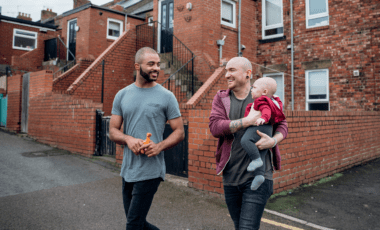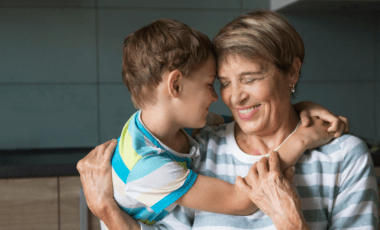
Beginning the search
While many care leavers know who their closest relatives are, it is possible you do not. You may have been separated at birth and so may have not yet met one or more of your parents. Alternatively you may have discovered the identity of a parent or the existence of siblings or half siblings from your records for the first time. Once you’ve received and read your records you may wish to search for and contact these birth relatives.
This process is similar to the one that adopted people go through to find their birth parents. However, there are important differences. The main one is that although your situation is very similar, as a care leaver you cannot access certain sources of information that may be made available to adopted people. Your access to intermediary services is also likely to be limited. Although some adoption support agencies may be able to offer this there will be a charge for them do so.
Finding relatives on social media
How to conduct a personal search– step by step
What to expect from the search
Hiring a professional researcher
What happens if I cannot find the birth relative I am looking for?
What if I find out that my birth mother and or birth father has died?
Do you wish to continue?
Some people are content with the information they receive from their records and don’t want to begin a search for relatives, and if you feel the same then it’s important not to be pressured by others to do something you don’t want to do or are not ready for at this point in your life.
Other people feel they want to take it further and begin a search for family members. Indeed you may have had this as your goal from the moment you started investigating your history.
You can always change your mind at any point during the process, as making contact with your relatives is likely to have a major impact on both you and your family. Searching for lost relatives may affect existing relationships, especially if the person you wish to contact is associated with difficult memories. You should speak to the people closest to you and make sure that you are in a good frame of mind before you begin.
Finding relatives on social media
Social media has made it much easier for people to find one another for free using Facebook and other sites. Care leavers, who may still be in touch with other relatives from their childhoods, often find it especially easy to locate people in this way. However, you should be careful approaching unknown people on these sites and set clear boundaries at the start. Whereas other forms of contact can be at your own pace, allowing you to get to know someone slowly, contact via social media can be very rapid. Depending on your privacy settings you may accidentally give someone access to lots of information about you and your family. You may also find out things about them that they would otherwise keep private. We recommend taking your time in messaging and ‘friending’ people so that you stay in control of your relationship.
How to conduct a personal search– step by step
The first step after getting your records is to speak to relatives you are in touch with and ask for further information about the person you are looking for, if this is possible. It may not be, either because you have no relatives to speak to or you may not want them to know about your search. However, if you can it will help you to put important clues together, such as the person’s last known whereabouts and information about their personal relationships. Along with information from your records this may help you to track them down.
For example, one care leaver has told us about how she found her birth father. He was not named in her records, but there was a reference to a street where he lived at the time of her birth. Speaking to an older sibling she was able to discover that he regularly visited a particular barber’s shop on this street, which was still there. The owner of the shop remembered the man and was able to give his name.
Once you have as much information as possible from your records and, if possible, family stories, we recommend you start your search in the following order by clicking the links below:
What to expect from the search
You
are essentially about to become a detective for a while. The process is equivalent
to the work required in researching a family tree. People’s experience of
tracing their birth relatives can vary depending on the individual. Some find
it boring and tedious, while others enjoy doing it.
In many ways the technical, repetitive nature of this stage of the process can
blind you to the still very complex emotional factors involved – many people
will feel excited while others might feel uncomfortable. It’s important to
acknowledge this and seek support throughout if you find that it’s raising feelings
you need to talk about. This might involve discussing it with a friend or
family member, or even inviting them to help you with the search.
Some relatives can be harder to trace than others, especially if they were only in the UK for a short time or now live overseas. You may have very limited information on them from your care records, and may not be able to supplement it by speaking to birth relatives, while others have lots of clues.
If you are aged 18-25 and are still in contact with your leaving care team, you can ask them for guidance and help in your search. They may also be able to act as intermediaries for making first contact. Some local authority and voluntary care providers also offer support to over 25’s (e.g. Barnardo’s have a paid-for research and intermediary service) but others do not. In this case we recommend contacting The Care Leavers’ Association or The Rees Foundation to find out about peer support networks. We also list other tracing services in our resources section.
Hiring a professional researcher
If you feel that you might struggle with your search, or have tried and failed in the past you might consider getting help from a professional. If you find that the local authority or organisation that cared for you is unable to help, you can contact The Salvation Army Family Tracing service, who may be able to help to reunite you with relatives for a small fee.
What happens if I cannot find the birth relative I am looking for?
Sometimes searches can prove very difficult and you do not manage to find the birth relative you are looking for. If this happens there are ways to widen the search, for example by looking for other relatives of the unfound person, for example, a sibling or adult child.
However, you may need to accept that you might never find them, or that the search will go cold for a number of years. Sometimes new information may come to light later in life, or you may yourself be contacted by the person you are seeking, but not everyone is successful.
It may also happen that the person you are looking for has passed away.
What if I find out that the person I am looking for has died?
This can be really upsetting, particularly if you have never considered this possibility before.
If you have found that your birth relative has died then you could apply for the death certificate as usually it will have the name and address of the person’s next of kin, so you can consider contacting them. You may also be able to find out if the person has left a Will as this may also open up other possibilities for contacting another relative who may be able to tell you more about the person you were looking for, and perhaps talk to you about them or give you a photograph.




